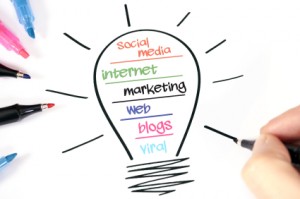If one thing’s for certain in these most uncertain times, it’s that humans are resilient. There have been comparisons of the coronavirus pandemic to an earthquake, where the initial quake shakes us to the core, but the aftershocks continue to reshape the world for months and years to come. Even after the immediate threat is over and the adrenaline of crisis management has done all it can, there will be long-term shifts in how we work, communicate, shop, and behave. But we weather the storm. We get inventive. We emerge stronger than ever.
And in the world of customer care, an industry that has felt the entire spectrum of effects – from drought to tsunami – we’re asking the big questions in anticipation of a better future.
Many of these questions start at home – with work-at-home, to be exact. For most contact centers, work-at-home solutions aren’t new – but WAH has historically been an option, one of the tools available, often deployed in conjunction with brick-and-mortar teams. For many outsourcers, the WAH teams formed a smaller contingent of resources than those employed in office or on-prem. And for many organizations, requirements (typically security or systems requirements) prohibited the deployment of work-at-home.
At Blue Ocean, having moved over 90% of our workforce into a remote environment in response to COVID-19 conditions, we know we’re not the only ones seeking answers about the long-term implications of work-from-home agents. What does remote work mean for long-term network management? What does redundancy and business continuity look like when your workforce depends upon home networks? What about security? What does it look like to maintain compliance with PCI-DSS, HIPAA, GDPR and other regulations when you don’t have control over an agent’s physical work environment? What about data storage? Will more businesses shift from on premise to cloud solutions?
The questions go deeper than the technical infrastructure of a remote environment. There are other tangible issues, such as hands-on product support where agents need continual access to the products themselves, in a lab environment, in order to provide optimal customer service. And then there’s the intangible issues – in particular, employee engagement and corporate culture. We have always been committed to creating a meaningful and engaging employee experience – and the pandemic pushed us to pivot and pivot quickly in order to maintain vital elements of our culture when we are physically separated. We face yet more questions: How do we support employees from a mental and emotional standpoint? Are internal communication channels effective for everyone? How are company culture and values reinforced and strengthened? How are employees recognized for their hard work? How do you take office perks, like pizza parties and incentive contests, and translate them into a remote environment?
And then there are the customers themselves. How will customer service continue to shift as we move forward? The customer experience is more important than ever, but many companies are being hit with astronomical call and email volume, making it difficult to respond in as personalized a manner as customers have become used to. How will omnichannel strategies shift as a result? Will companies continue to leverage AI in the same ways or will the pandemic reveal new ways to integrate digital solutions into the contact center? What lessons will we learn from the massive amounts of data accumulating throughout this crisis?
These questions are obviously just the tip of the iceberg, but we’re confident that we can help pioneer the way forward. What about you?
Business & Finance Articles on Business 2 Community
(58)
Report Post






